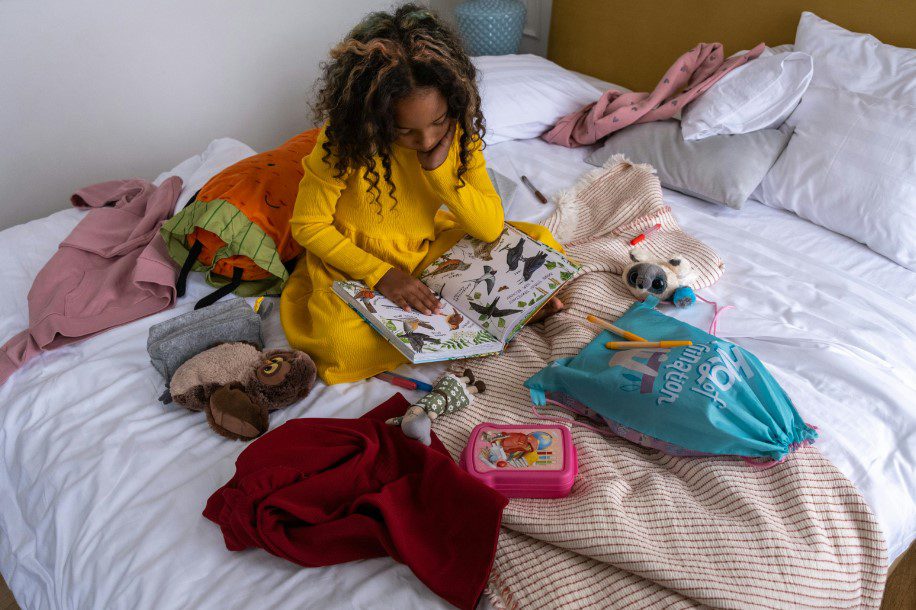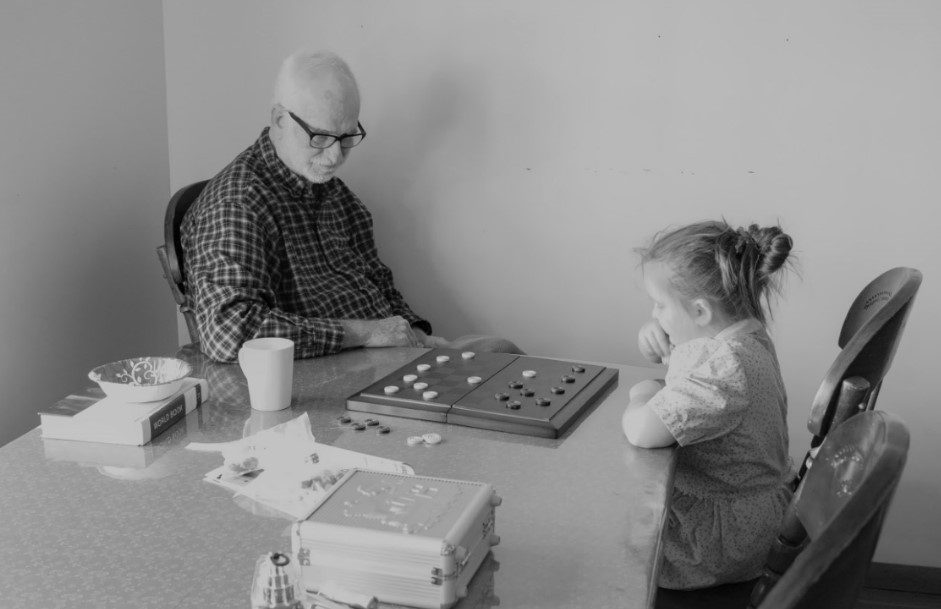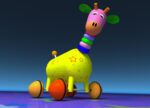Recent studies have unveiled the mechanism behind how puzzles act as a cognitive catalyst. When children engage in solving puzzles, the brain enters a state of heightened activity, activating various neural pathways associated with memory and problem-solving.
This heightened synaptic activity creates an optimal environment for the retention and recollection of information.
Neuroplasticity, the brain’s ability to reorganize and form new neural connections, is a fundamental aspect of memory enhancement. Puzzles stimulate neuroplasticity by requiring individuals to adapt and create novel pathways for problem-solving. This adaptability translates into a more resilient and agile memory.
Children have amazing potential for learning and memory development, and there are many fun and engaging activities you can do to help them strengthen their skills.
Here are some ideas categorized by age group:
Children engaging in games, both outside and inside the computer, contribute to their holistic development, providing a range of benefits in different aspects of their lives.

For younger children (preschool and early elementary):
- Matching games: Classic memory games, picture lotto, or homemade flashcards with familiar objects are great for visual memory.
- Simon Says: This game trains auditory memory and following instructions.
- I Spy: Encourages observation and memory recall as children describe objects using clues.
- Singing songs and rhymes: Repetition helps solidify information in memory.
- Storytelling: Engaging stories with repetition and interesting details capture attention and memory.
- Treasure hunts: Hide objects and create clues, encouraging spatial memory and following directions.
- Simple puzzles: Start with smaller piece counts and gradually increase difficulty.
- Pretend play: Imaginative play allows children to practice using their memory in different scenarios.
For older children (elementary and middle school):
- Card games: More complex games like chess, checkers, or strategic memory games challenge memory and planning skills.
- Board games: Choose games that require remembering rules, strategies, or past moves.
- Crosswords and word puzzles: Stimulate vocabulary and memory recall.
- “I packed my suitcase” game: Requires remembering a growing list of items in order.
- “Telephone” game: Tests auditory memory and retelling information accurately.
- Drawing from memory: Show a picture for a set time, then ask them to draw it from memory.
- Make up stories together: Take turns adding sentences, requiring each person to remember the previous parts.
- Learn a new skill or hobby: Focus and repetition involved in learning something new strengthen memory.
- Active reading: Extensive reading is very important. Encourage summarizing, highlighting key points, and discussing what they read.
Reminder!

Memory plays a crucial role in the overall development of children. It is an essential cognitive function that contributes to various aspects of learning, problem-solving, and social interactions.
Here are several ways in which memory is important in child development:
- Learning and Academic Achievement: Memory is fundamental to the process of learning. Children use both short-term and long-term memory to acquire and retain information. Memory skills are especially critical in academic settings, where students need to remember facts, concepts, and skills to succeed in various subjects.
- Language Development: Memory is closely tied to language development. Children use memory to remember words, sentence structures, and vocabulary. This ability helps them in both understanding and producing language, which is crucial for communication and literacy.
- Cognitive Skills: Memory is a key component of cognitive development. It allows children to recall and apply information, solve problems, and make connections between different pieces of knowledge. Strong memory skills contribute to improved cognitive functions such as reasoning, attention, and decision-making.
- Social Interaction: Memory is essential for social interactions and relationships. Children need to remember social cues, names, and the details of previous interactions to navigate social situations effectively. Memory also helps them understand and learn from social experiences.
- Motor Skills Development: Memory is involved in the development of motor skills. Whether it’s remembering the steps of a dance routine or the sequence of actions in a game, memory helps children coordinate their movements and develop fine and gross motor skills.
- Emotional Regulation: Memory is linked to emotional development. Children use memory to recall and understand their emotional experiences. This ability to remember and reflect on emotions contributes to emotional regulation and the development of empathy.
- Executive Functioning: Memory is an integral part of executive functioning, which includes skills like planning, organizing, and self-control. Children with strong memory skills are better equipped to manage tasks, set goals, and follow through with plans.
- Problem-Solving: Memory is essential for problem-solving and critical thinking. Children draw on their memory to retrieve information, analyze situations, and come up with solutions to challenges they encounter.
Therefore,
Children’s brains are naturally curious and absorbent, making them well-suited to memory development. Remember, the key is to make the above activities fun and engaging. Tailor them to your child’s age and interests, and celebrate their progress along the way!
Therefore,
- Make it fun and engaging! Children are more likely to learn and remember when they’re enjoying themselves.
- Keep it age-appropriate: Choose activities that are challenging but achievable for their age and development level.
- Incorporate movement and sensory experiences: Engage multiple senses for better memory retention.
- Practice regularly: Short, consistent practice sessions are more effective than infrequent long ones.
- Positive reinforcement: Praise and encouragement go a long way in motivating children to continue learning.
Remember, every child learns and develops at their own pace. Be patient, celebrate their progress, and focus on creating a positive learning environment. If you have concerns about your child’s memory development, consult a healthcare professional or educator.





Leave a Reply